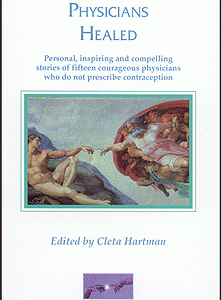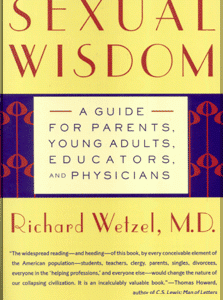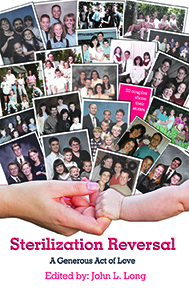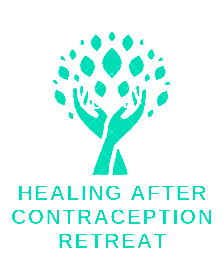Health Care for the Whole Person
Wednesday was a five hundred mile day with a brief stop in Pendleton in the middle of the drive. The trip took me to Saint Anthony Hospital for the blessing of a new addition to the hospital which includes a lovely, conveniently located prayer chapel. In reality the Chapel at Saint Anthony Hospital is more than a prayer chapel. It is a Presence Chapel, a Consolation Chapel, a Peace Chapel, a Hope Chapel, a Grief Chapel, a Healing Chapel. There a person encounters more than his or her own thoughts. There one encounters the living Presence of Christ Himself. There, in the Presence of Him who is the source of consolation, peace, hope, and proper healing, one encounters thoughts which are beyond one’s own. There one comes face to face with the Reality of all realities, the true, living and eternal God. Many hospitals have a chapel but only Catholic Hospitals have a chapel with a Presence. Catholic Hospitals are therefore different and the difference does not end at the chapel.
The medicine practiced in Catholic Hospitals is called Catholic, because its underlying reason is Christ and because it is Christ who helps us determine what should be done and how it should be done.
Even the determination of ‘effectiveness’ is somehow different. What does it mean for Catholic health institutions and for Catholic Health Care workers to be effective? If the measure of that effectiveness is simply doing medicine extremely well and with great compassion then it would be enough simply to look at function. Clearly, the effectiveness of a Catholic Health Care facility can be evaluated partially on the basis of function but if we settle for that criterion then we compete with a worldly model on worldly terms and that is not where our true strength or value rests. If we successfully compete for a greater market share and extend our presence into more communities, if we expand our facilities and lead the industry in creative innovation, if we treat people with compassion and are spoken of favorably in the marketplace but forget ‘Why’ we are there, it means nothing.
What does it mean to say that a particular style of medicine is ‘Catholic’? Most obviously, we note that Catholic medicine is not a different brand of medicine with its own unique prescriptions and surgical procedures. It is not a medical system set aside solely for Catholics. It is not an excessive reliance on miracles and supernatural interventions. It is not a semi-superstitious reliance on chants and incantations. Then, again, Catholic medicine is a different brand of medicine with its own unique prescriptions which call for a deeper reliance on God. It has its own surgical procedures which try to excise sin and evil while treating a cancer or an infection. It is a medical system not solely for Catholics but for the treatment of the entire human person as understood by Catholics. It does not rely excessively on miracles or supernatural interventions, but it does rely on these things.
Catholic medicine is not so much about what is done medically as it is about what is done spiritually. We take our cue for Catholic medicine from Christ Jesus Himself who healed the sick and comforted the suffering. We are all aware of the various healing miracles of Jesus and it is these healing miracles which give the impetus for the medical activities of the Church. Precisely because Jesus healed the sick, the Church is now involved in a healing ministry. When Jesus was asked by the disciples of John whether He was the Messiah He replied by simply saying: “Go tell John what you see and hear. The blind see, the lame walk, lepers are cleansed, the deaf hear, the dead are raised, the poor have the good news proclaimed to them.” Jesus’ care for the sick, suffering, lost and rejected became the mark of recognition for Him and the verification that He was from God. It was a clear, ‘Yes, I am the Messiah’ but it was spoken in the universally understood language of compassionate action. The Catholic Church continues to speak that same language primarily through its social services and the provision of Catholic Health Care.
It is especially important to note that Jesus also clearly taught that He did not come only or exclusively for the healing of the body. If He had He would have placed a much greater priority on healing. As it is He did not heal everyone who was sick, He did not raise up everyone who died, He did not eliminate a single disease, though He had the power to do so. If we have any wonderment about this, it is a sign that we do not properly understand what Jesus really came to do. The last line of His response to John is the key: “the poor have the good news proclaimed to them”. This was not just one element among all the rest, not one part among other pieces, it was what Jesus came to do. It is a recognition and remembrance that Catholic Health Care is about spreading and proclaiming the Good News which will help assure that we never lose sight of the real meaning of Catholic Health Care.
Saint Anthony Hospital has been in Pendleton for one hundred years. It was started at the same time the Diocese was established. For one hundred years it has been a place where Christ’s healing and compassionate Presence is manifest both in its Chapel and in its personnel, particularly the Sisters of Saint Francis of Philadelphia. The new Chapel will help assure that Saint Anthony Hospital will continue into an indefinite future to be a model and witness to the compassion of Christ, a compassion which shows due regard for physical well being but which simultaneously also upholds the primacy of the spiritual.
Perhaps in our Catholic Hospitals, more than in any other place in Eastern Oregon, those who need to hear the Gospel of Jesus and to encounter Him will have the opportunity to do so. I pray that those who do not yet know Christ may find Him in that peaceful little Chapel, where He who is the Divine Physician waits.






